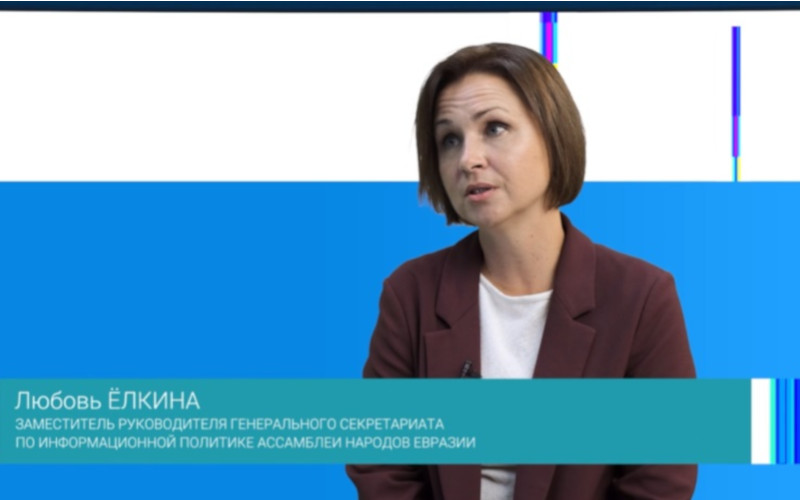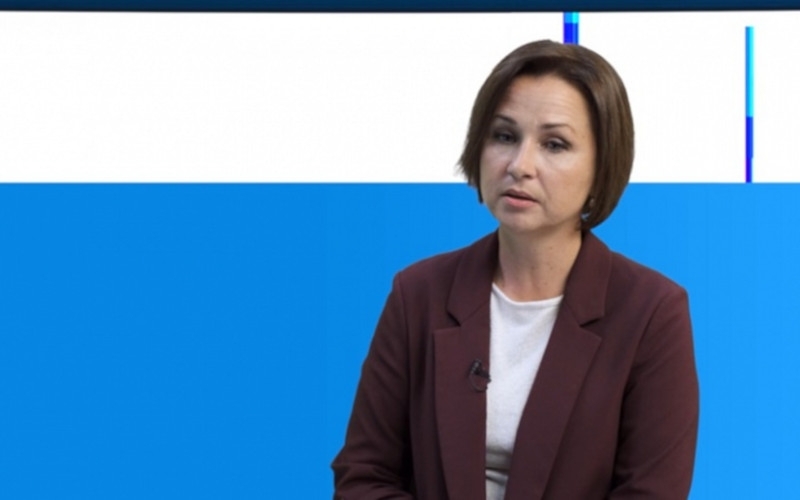
Footage from the Program “Compatriots” of the TV channel “Big Asia” / Ivan Stepanyuk
Ksenia Antipova, presenter of the TV magazine “Compatriots”, talks with Lyubov Elkina - Deputy Head of the General Secretariat of the Eurasian Peoples’ Assembly.
- The “Big Asia” media holding is a strategic partner of the Eurasian Peoples’ Assembly, and since we often talk about the Assembly's projects both on our TV channel and on the website, today's interview will be more for those who for some reason are not yet familiar with your organization. Let's get started! Lyubov, when and how was the Eurasian Peoples’ Assembly established?
- The Assembly was established on May 27, 2017. A few days later, the “Big Asia” holding company appeared. “Big Asia” is a strategic media partner of the Eurasian Peoples’ Assembly. We share many of the same goals. Both organizations are young, but I think they are very promising.
I have a booklet in my hands that we present when new members and third-party organizations want to join us. It is called the “Eurasian Peoples’ Assembly”. First of all, the Eurasian Peoples’ Assembly has emerged as a platform for discussing meanings, discussing the future, developing integration processes, and bringing together non-governmental organizations’ cooperation.
At the moment, we bring together representatives of public organizations from 43 countries of the continent of Eurasia. Our main goal is to form a social integration model for the sake of establishing peace and harmony among the peoples of the continent. It's a high-flown goal, but it's also a simple one. When the leadership of the Eurasian Peoples’ Assembly declares that we are for peace and friendship, this is true!

- You have already said that the Assembly started its work in 2017. How many countries did the First Congress bring together?
- The initiative to establish the Eurasian Peoples’ Assembly was born in Russia. This initiative was taken by the largest all-Russian organization, the Assembly of peoples of Russia and its partners. The interest was so great that representatives of organizations from 67 countries came to Moscow for the founding Congress. 2500 people, 3 days of the Congress, 40 thematic sites. A good result was achieved: a Charter was signed, goals and objectives were defined: to move towards peace and harmony through cultural and humanitarian cooperation. This is stated in our Charter documents, and we have been working with the help of all our members and partners for 3 years.
- Lyubov, what language does the Assembly speak? Are there several of them?
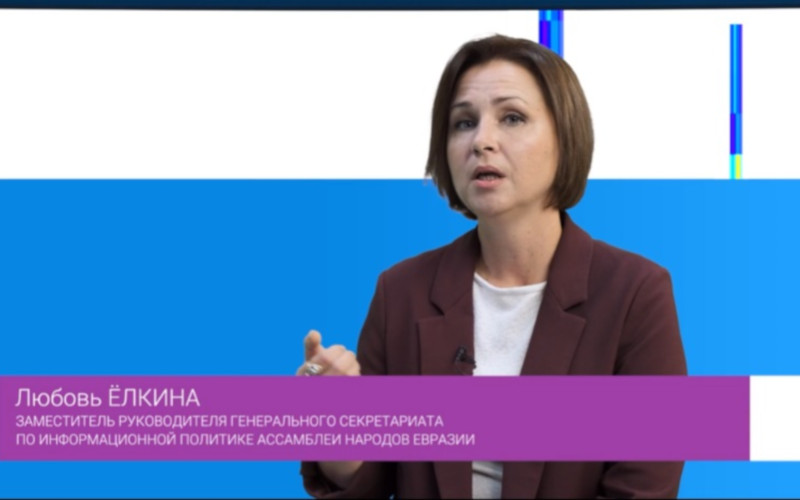
- Ksenia, you are right, we have several official languages. Russian language, because the initiative was born in Russia, and Russian is actually very popular in the world. And English is our second working language.
I can say that there are those who did not know the Russian language, but during their work with the Assembly members, they even learned some phrases. Now it is possible to communicate behind the scenes before our meetings, that is, we can exchange a few phrases in Russian. This is very nice!
- How does the organization work? Am I right that a specialized Council of representatives from different countries is created for each area of activity?
- You are quite right! In the structure of the Assembly, there are Specialized Councils that deal with projects in certain areas. There are certain conditions for the establishment of the Council. We should have representatives from Asia, representatives from Europe, and representatives from Russia. This condition was accepted when the organization was established. The Secretary General has a Deputy from the European region, a Deputy from the Asian region, and a Deputy from Russia. This is how we are structured.
In 2017, I can honestly say that the structure of the Assembly developed a little spontaneously. We have created more than 30 councils. And now after 3 years work, we understand that there is a certain procedure of consolidation. We realized that we have projects that can be combined on a humanitarian platform. There are projects that can be combined on an environmental platform. On information platform there is everything that concerns media and journalism. Every 4 years, a General Assembly is held. We have already begun to prepare for it. It will be held in 2021, and there we will announce this consolidation and talk about these platforms.
As for the international direction, we plan to get coordinating membership in UNESCO and the UN. This is very important for the status of any non - governmental organization. This is very important for us, because we have a lot of things that coincide with the sustainable development goals, and a lot of things that we could bring to the development of the achievement of these goals. Now, after 3 years, we can start this procedure - getting a coordinating membership, and we are doing it.

- For 3 years, you have had quite a lot of interesting projects. Which, in your opinion, were the largest and most significant?
- We can say that some of them have become areas of activity. For example, working with children. We have “grown” the direction of EURASIA KIDS. EURASIA KIDS is a multimedia project, now it is also held online. Online meetings, educational workshops, festival projects, and camps were initially held.
There is a “School of Friendship” in Serbia, which we initially implemented as a project, but it has grown into a whole direction, which is already being joined by various public organizations and charitable foundations. We all understand that this is a very heartfelt story, it is a very kind story, it is a very important story, because these children are shaping the future.
Also, the direction of work with young people has grown into the Youth Wing of the Eurasian Peoples’ Assembly - the Eurasian Youth Assembly. We hope that it will become Autonomous over time. I can honestly say at the moment we have no leader of this organization, but there is a very powerful asset, very good projects, such as “Eurasian Youth Assembly Lecture Hall”, where we discuss geopolitical issues, educational issues that concern young people and what they care about. This initiative was launched during the pandemic and is currently being held online, but we hope that there will be live meetings.
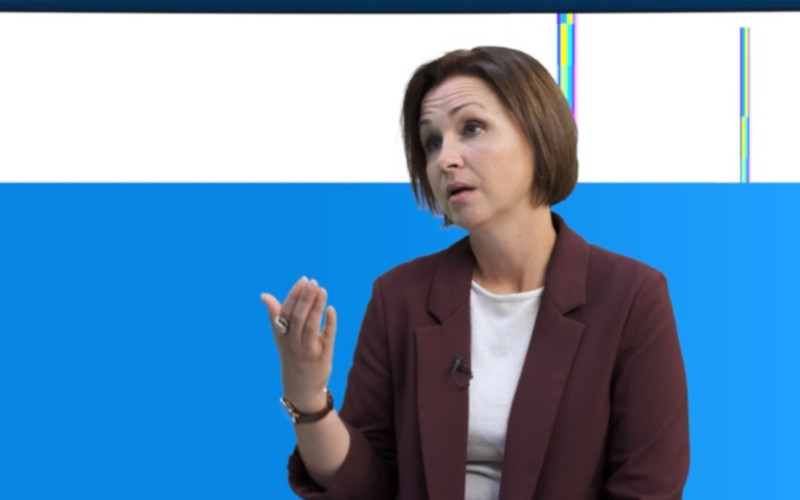
Our Eurasian Youth Assembly has also launched the DICOVER EURASIA project. The first stage has started. At the first stage, we made a photo contest. We want to show the best places in Eurasia and at the same time form a pool of photographers or people who like to shoot. We will involve them in our activities, invite them to our events, arrange meetings, and ask them what they care about.
Since 2017, one of the global flagship projects is the Days of the Eurasian Peoples’ Assembly in different countries. Until the spring of this year, they were held in full-time format. We visited France, India, Mongolia, Azerbaijan, and the United Arab Emirates. Many countries were planned for this year, but the pandemic has made adjustments. Probably, in the fall we will hold the Days of the Eurasian Peoples’ Assembly in an online format.
What are the Days of the Eurasian Peoples’ Assembly? We have meetings with businesses, roundtable meetings on cultural layers, discussions on preserving common historical moments. Young people also meet there. The Assembly has a delegation of representatives from different countries, and, accordingly, half of the participants of these Days are representatives of the country we have come to.
This year, in honour of the 75th anniversary of the end of the Second World War and the Great Victory of the Soviet people, we launched the megaproject “VICTORIOUS TOGETHER – for Peace and Creation”. This project brings together a lot of events, a lot of events that will go on until the end of the year. In fact, this is a topic that has never diminished in our country. Now attention of the whole world is focused on it, and we are glad that this topic is being discussed.

- Tell us more about it! What events and actions were held as part of this mega-project?
- Thank you, Ksenia, for the question! You already know, and “Big Asia” covered several of our events. We had a teleconference “Meeting on the Elbe” on April 24. It was absolutely grandiose event. Accordingly, we made it online, and we had broadcasts on YouTube and Facebook. More than 1,000 people watched, joined, participated, and asked questions. They were both Russian-speaking and English-speaking. The main backbone is the CIS countries, the countries of the former USSR. We are all united by this theme – the theme of the Great Victory. First of all, these are the former Soviet republics and Russia.
A number of other events that take place as part of the megaproject are International public forums. One of them was held at the end of 2019. It was full-time, in Azerbaijan. These are forums for preserving the historical memory of the results of the Second World War and the Great Patriotic War.
We hold forums in iconic locations. We had the Yalta forum in the Livadia Palace, where we had a historic meeting. The next event to be held is the Sevastopol Documentary film festival VICTORIOUS TOGETHER. An International public forum will be held as part of this festival. It is always held with international participation. China, Turkey, and representatives of other countries are actively joining us. We discuss how to preserve what was really there; how to pass it on to our descendants, our children; what non-governmental organizations can do for this and how we are going to do it. We form a Resolution after each International public forum, and at the end of the year we will form a general final document that will be sent to UNESCO, the UN and other major organizations.
Returning to the megaproject in honour of the 75th anniversary of the Victory. Every year on June 22, we hold an International memorial event. The first one was held in Bishkek, Kyrgyzstan. This year we had to conduct it online. Initially, we did not think that this would arouse such interest, but the participants were from different parts of Eurasia, all 15 former Soviet republics. People came out with us on the online connection from the memorials. The action was launched in Dubosekovo, from Russia. And in turn, each country told where they are, at what memorial, what it is dedicated to. There were all: both adults and small. It didn't bother anyone that it was 4 o'clock in the morning. People have stood up because they understand that this needs to be discussed. You need to record it, transmit it, show it, and talk about it.
As part of this action, we read Requiem in 20 languages. This also took place partly online, partly someone gave us a recording, because due to the quarantine, not everyone could be in some historical place at this time. They came out in advance and sent us a recording. “And remember those who are gone forever! I implore you to remember!” — it was read in 20 languages. We have this recording. Of course, it's so creepy.
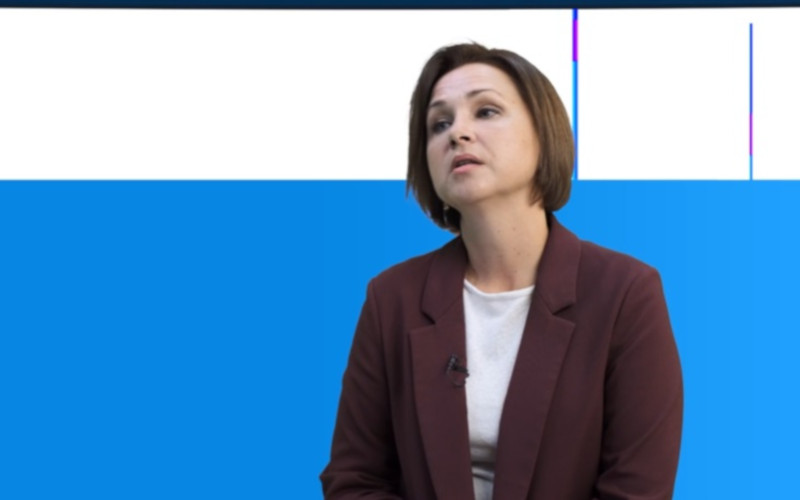
- What are the Assembly's plans for the near future?
- We have started preparing for the General Assembly, a landmark event for us. It is held every 4 years; it is prescribed in the Charter. In theory, it should be in the spring of 2021. The General Assembly is going to meet, all the members of the Assembly are going to meet: the Presidium, the Deputy Secretaries General, our partners are coming. This is a big event, and it should be held in person. I won't name the host country yet, but we are discussing several countries that can host it. We will talk about this, of course.
One of the upcoming events is the DISCOVER EURASIA contest. We are waiting for everyone! Most likely, we will extend the time a little - until the end of September. The first works have already been received, very beautiful places, pleasing to the eye. If we show our Altai or something else in the Arab Emirates, I think it's very good. Terms of the contest are on our site. The contest is called DICOVER EURASIA.
At the end of August, the International Documentary film festival VICTORIOUS TOGETHER has opened in Sevastopol. In early September, we plan to hold the International public forum “VICTORIOUS TOGETHER - for Peace and Creation” in Sevastopol. So far, we have online projects.
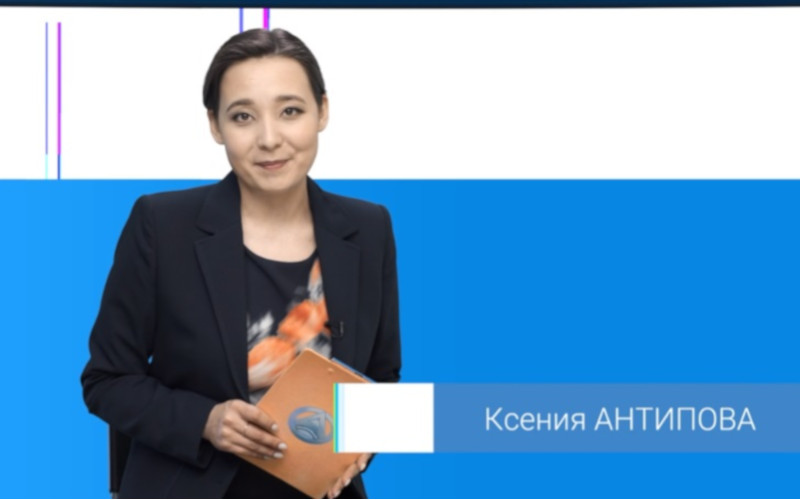
We have a series that we call “Meetings with Partners”. And the pandemic gave us a chance. If earlier we had these meetings as part of the Assembly Days, we planned meetings, we had to go out and organize, and now we meet online and no one has cancelled the joy of communication. This is a kind of presentation platform where once again we talk about the goals and objectives of the Assembly. We present our partners and they tell us about themselves. We do live broadcasts in Facebook and our social media community. Partners find common ground and sometimes go further, what is also very good.
We have already held meetings with the Eurasian Creative Guild (London) – they are our partners, “Russian House” in Verona (Italy), International Mugham Centre (Azerbaijan). We plan a meeting with African partners. We communicate with them quite closely and see great prospects.
We are open to cooperation! We invite to join the Eurasian Peoples’ Assembly those who care about the values of peace, friendship, culture, sports, and youth!..
